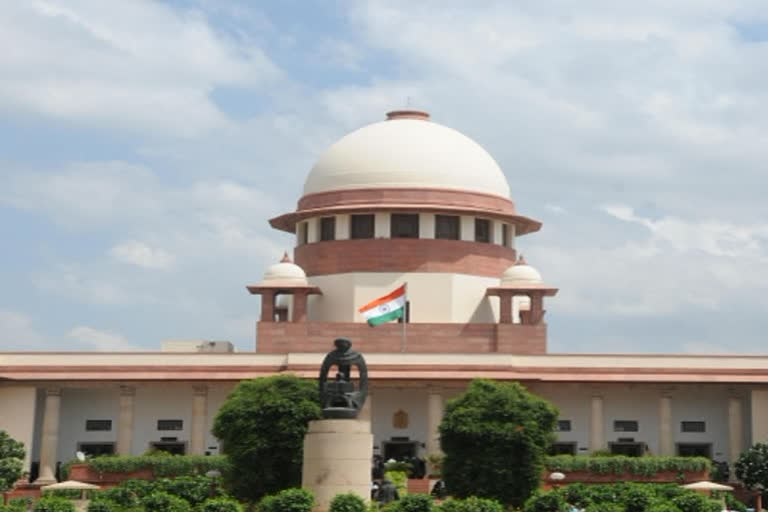New Delhi:The Supreme Court, in its judgement pertaining to dowry, has held that the word dowry includes any kind of property or valuable security including demand for money to construct a house.
The bench comprising of CJI NV Ramana, Justice AS Bopanna, and Justice Hima Kohli was hearing a case by the state of Madhya Pradesh against the Madhya Pradesh HC order, that had acquitted the husband of the deceased woman and her father-in-law in a dowry case, holding that she herself had asked her family members for money in order to a construct a house and therefore it can not be termed as a dowry demand.
The deceased woman had committed suicide by setting herself on fire, allegedly due to constant harassment by her in-laws and husband who asked for money for constructing a house and also beat her for not providing the same.
The top court ruled that "it cannot be lost in the sight of that the respondents(in-laws) had been constantly tormenting the deceased and asking her to approach her family members for money to build a house and it was only on their persistence and insistence that she was compelled to ask them to contribute some amount for constructing a house".
READ:"Should the court sit back and look at a woman being dehumanized:" Amicus to Delhi HC on marital rape
The court observed that the HC fell in error in drawing inference and evidence shows that the deceased woman was pressurized to ask for money from her family. "It was not a case of complicity but a case of sheer helplessness faced by the deceased in such adverse circumstances," observed the court.
Citing its earlier judgements on dowry, the court held that "section 304 B was inserted in the IPC to combat the social evil of dowry demand that has reached alarming proportions, it cannot be argued that in case of an ambiguity in the language used in the provision, the same ought to be construed strictly as that would amount to defeating the very object of the provision".
"Interpretation of a provision of law that will defeat the very intention of the legislature must be shunned in favor of an interpretation that will promote the object sought to be achieved through the legislation meant to uproot a social evil like dowry demand. In this context, the word "Dowry" ought to be ascribed an expansive meaning so as to encompass any demand made on a woman, whether in respect of a property or valuable security of any nature. When dealing with cases under section 304-B IPC, a provision legislated to act as a deterrent in society and curb the heinous crime of dowry demands, the shift in the approach of the courts ought to be from strict to liberal, from constricted to dilated. Any rigid meaning would tend to bring to naught, the real object of the provision. Therefore, a push in the right direction is required to accomplish the task of eradicating this evil which has become deeply entrenched in our society," observed the court.\
The court set aside the HC order of acquittal and directed the husband and the father-in-law to surrender before the trial court within 4 weeks to undergo the remaining period of their sentence.
